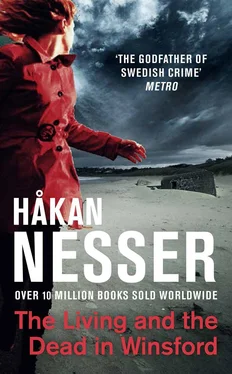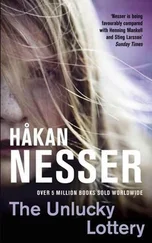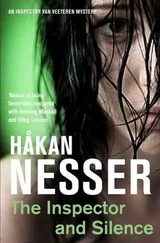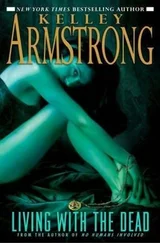Håkan Nesser - The Living and the Dead in Winsford
Здесь есть возможность читать онлайн «Håkan Nesser - The Living and the Dead in Winsford» весь текст электронной книги совершенно бесплатно (целиком полную версию без сокращений). В некоторых случаях можно слушать аудио, скачать через торрент в формате fb2 и присутствует краткое содержание. Год выпуска: 2013, Издательство: Mantle, Жанр: Криминальный детектив, на английском языке. Описание произведения, (предисловие) а так же отзывы посетителей доступны на портале библиотеки ЛибКат.
- Название:The Living and the Dead in Winsford
- Автор:
- Издательство:Mantle
- Жанр:
- Год:2013
- ISBN:нет данных
- Рейтинг книги:4 / 5. Голосов: 1
-
Избранное:Добавить в избранное
- Отзывы:
-
Ваша оценка:
- 80
- 1
- 2
- 3
- 4
- 5
The Living and the Dead in Winsford: краткое содержание, описание и аннотация
Предлагаем к чтению аннотацию, описание, краткое содержание или предисловие (зависит от того, что написал сам автор книги «The Living and the Dead in Winsford»). Если вы не нашли необходимую информацию о книге — напишите в комментариях, мы постараемся отыскать её.
The Living and the Dead in Winsford — читать онлайн бесплатно полную книгу (весь текст) целиком
Ниже представлен текст книги, разбитый по страницам. Система сохранения места последней прочитанной страницы, позволяет с удобством читать онлайн бесплатно книгу «The Living and the Dead in Winsford», без необходимости каждый раз заново искать на чём Вы остановились. Поставьте закладку, и сможете в любой момент перейти на страницу, на которой закончили чтение.
Интервал:
Закладка:
For the foreseeable future nobody with conventional resources was going to be able to find us: that was the basic fact that I had to grasp and adhere to.
And I did so.
*
When we left the Albrechtshof early in the morning of the twenty-eighth of October, I had succeeded in withdrawing from various banks and ATMs a total of 45,000 euros, which together with the 10,000 US dollars and the 12,000 euros we already had in our travelling funds ought to be sufficient ready money to keep our heads above water for at least six months. And if we lived frugally, for considerably longer.
And during the misty morning hours on the motorway between Berlin and Magdeburg, I decided on England. I had toyed with the idea of both Spain and Provence — and Italy and Greece as well, to be honest — but in the end what really mattered was not the climate. I wanted Castor and myself to withdraw to a country where I could speak the language reasonably well, could read a daily newspaper without any problems and follow the news broadcasts on the radio and television. I’m not absolutely clear why those factors felt so essential — but God knows, that was not the only thing I was not absolutely clear about.
The following night we stayed in a small hotel in Münster, literally in the shadow of the big cathedral. When we checked in I explained that both my credit cards and passport had been stolen, and asked to pay in advance in cash. No problem. It is a distinct advantage to be a respectable-looking fifty-five-year-old woman: people tend to believe you, whatever you say.
Nor were there any problems when it came to getting Castor across the English Channel — but there would have been if I hadn’t bluffed my way through customs. I only became aware of the British regulations regarding the movement of animals when I got to the tunnel terminal in Calais, and after thinking things over carefully I decided to take a chance. I adjusted all my luggage to make room for Castor, and covered him over with a blanket: I prayed to God that nobody would discover him, and my prayers were answered. I had to present my own passport, of course, but as far as I could see it wasn’t scanned — and so I’m not sure whether my arrival in the UK was registered at all.
Be that as it may, I have no intention of looking further into the matter. Moreover, if I had spent more time thinking matters through, I might well not have chosen Great Britain as my destination anyway. The border between France and the island kingdom is basically the only manned crossing between two countries in Western Europe. But the fact is that I didn’t spend more time thinking about it, and so fate took its course. As I sat resting in the car as the train rattled its way through the tunnel, I concluded that one has to take a few risks and challenge fate and the powers that be now and then, one really does.
We drove off the tunnel train and found ourselves in dirty grey, rather shabby imperial territory. Driving from Folkestone into central London was a veritable challenge. All the way I had the feeling that I would have a collision at any moment, and that Castor and I would spend the evening in police custody. And hence that everything would have been lost. I tried to continue challenging fate and the powers that be, but it was far from easy. During the two-and-a-half hours it took us to get to Marble Arch I was preoccupied with controlling a racing heart and barely suppressed panic, and when I eventually managed to park in a little side-street leading to Queensway in Bayswater I had such feelings of relief that I clasped my hands in prayer and gave thanks to God.
It was half past six, and raining. Unfortunately the entrances to Kensington Gardens and Hyde Park were closed as it was dark, and so we had an evening walk to Notting Hill instead. The rain was thin, to say the least, a kind of drizzle you only experience in London — drops of water drifting around in the air without actually falling. I have never experienced anything like it anywhere else, at any rate. We started asking about accommodation, and eventually found a small hotel in Leinster Square that agreed to take both me and my dog for the next three or four nights. It was a cramped little room looking out onto a firewall; but both Castor and I were grateful for having a roof over our heads. We returned to the car at precisely the right moment to avoid a parking ticket, and the warden actually smiled and waved at us as we drove away. I regarded this as a friendly sign from heaven above, and after having unloaded some of our luggage and a packet of dog food at our hotel, then driven around for a while, I found a multistorey car park not far from Paddington where you could drive in and leave the car without needing to pay in advance. I thought I would let it stand there until it was time to leave London, and that I would be able to explain to the attendant that I had lost my credit card and hence would be paying cash. Respectable-looking middle-aged ladies don’t tell lies in this country either.
And that is exactly what happened in the end. It’s not all that easy to remain incognito nowadays, but I had the feeling that I was learning how to do it as a matter of course.
14
Twelve degrees. Lifting mist and a south-westerly wind. The sixth of November.
A fire, a short walk towards Dulverton, breakfast, thirty pages of Bleak House . Mornings are easy. We’ve only slept in the house for four nights, but it seems as if it could have been forty. The way you live one day is the way you can live all the rest of your days — that is a recurrent thought, but I’m not sure how true it is.
A group of wild ponies came to greet us. Shaggy but friendly, they seemed to us. Muddy and wet, one might add — I’m thinking of buying a pair of Wellingtons to wear instead of my walking boots.
At about noon the sun began shining in earnest, and we went for a car ride to nowhere in particular. We drove northwards and eventually stopped in a little lay-by between Exford and Porlock. Up here the moor is just as barren and extensive as Mark Britton described it. You can see for goodness knows how many kilometres in all directions, and there isn’t a single building in sight. No sign of any human activity at all, barely even a tree: just heather, gorse and bracken. Rough grass, moss and mud. The heavens seem very close indeed in such landscapes. We followed a sort of path in a north-easterly direction — I assume it’s the wild ponies that have made it — but it seemed to peter out in places and then double back on itself. It was often too wet to walk on, and we were compelled to literally force our way through the rough heather: but Castor regarded it all as a stimulating challenge, and I noticed that his attitude was rubbing off on his missus. I felt possessed by a strange feeling of freedom, of something wild and primitive. The way you live one day . . We skirted around the most waterlogged swamps, always looking back over our shoulders to make sure we didn’t lose our bearings — always respectful guests in this barren, unspoiled countryside. You don’t need to steel yourself to act like that, the feeling simply takes possession of you, the most natural thing in the world. You feel incredibly small.
Then suddenly the sky was cloudless and bright blue. It occurred to me that simply knowing that such days are a possibility, that they are stored away in time and in our calendars, makes it possible to endure our environment in ways that I have frequently found too easy to forget. After a while we came across a large group of ponies some distance away, twenty-five or thirty of them, all grazing on a sunny slope: and I immediately imagined them standing there for ever, in exactly the same place, totally indifferent to world wars, the decline and fall of the Roman empire, and the invention of the wheel. On that sun-drenched slope in the England that was after all the cradle of the modern era.
Читать дальшеИнтервал:
Закладка:
Похожие книги на «The Living and the Dead in Winsford»
Представляем Вашему вниманию похожие книги на «The Living and the Dead in Winsford» списком для выбора. Мы отобрали схожую по названию и смыслу литературу в надежде предоставить читателям больше вариантов отыскать новые, интересные, ещё непрочитанные произведения.
Обсуждение, отзывы о книге «The Living and the Dead in Winsford» и просто собственные мнения читателей. Оставьте ваши комментарии, напишите, что Вы думаете о произведении, его смысле или главных героях. Укажите что конкретно понравилось, а что нет, и почему Вы так считаете.












